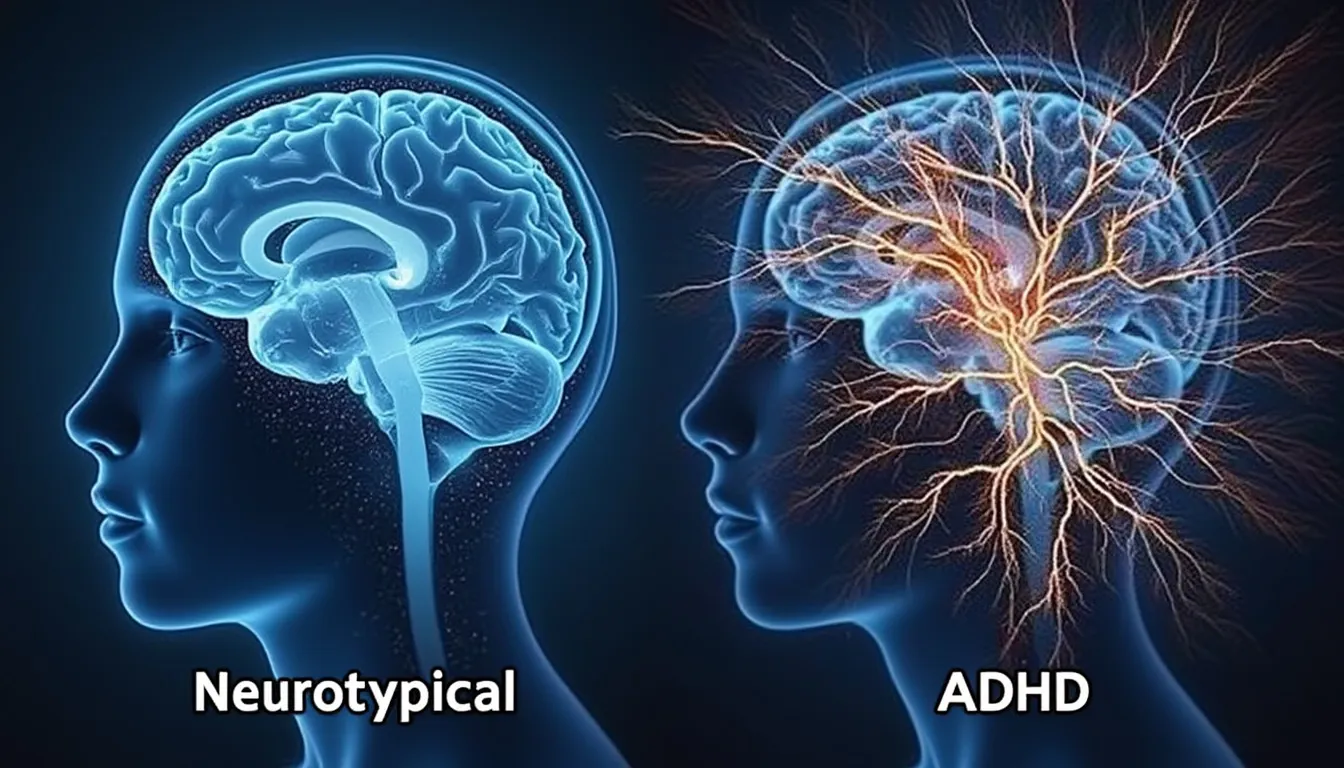What Does ADHD Brain Fog Feel Like? Understanding and Clearing the Mental Haze

Attention-Deficit/Hyperactivity Disorder (ADHD) is a neurodevelopmental condition that impacts attention, focus, and executive functions. Beyond the more commonly known symptoms of hyperactivity and impulsivity, many individuals with ADHD also grapple with a pervasive and frustrating experience known as "brain fog."
Imagine this: you walk into a room, purpose firmly in mind, only to have that purpose evaporate like mist on a sunny morning. Or perhaps you're in the middle of a conversation, and the words you're searching for seem to be just out of reach, lost in a mental haze. This is a glimpse into the disorienting world of ADHD brain fog, a state of mental cloudiness that can significantly impact daily life.
What is ADHD Brain Fog?

So, what is brain fog ADHD? It's a term used to describe a set of symptoms that create a sense of mental sluggishness, lack of clarity, and difficulty with cognitive tasks. It’s not a formal medical diagnosis in itself, but rather a common experience for many people with ADHD.
But does ADHD cause brain fog? Yes, the unique neurology of ADHD is a significant contributing factor. In layman's terms, ADHD involves differences in brain structure and the functioning of neurotransmitters, particularly dopamine and norepinephrine. These chemical messengers play crucial roles in regulating attention, motivation, and executive functions like planning and organization. When these systems aren't operating optimally, it can lead to the cognitive inefficiencies experienced as brain fog. Research indicates that individuals with ADHD may have altered connectivity between brain regions, further impacting information processing and contributing to that feeling of mental fogginess.
Recognizing ADHD Symptoms Brain Fog
The experience of ADHD brain fog can manifest in various ways, often overlapping with core ADHD symptoms but with a distinct quality of mental haze. Common ADHD symptoms brain fog, include:
Difficulty Concentrating: Even more so than typical ADHD-related distractibility, brain fog can make it feel impossible to lock onto a task. It's like trying to see through a dense fog – the harder you try to focus, the more elusive clarity becomes. For instance, reading a page multiple times without comprehending the content, or drifting off in the middle of important instructions.
Forgetfulness: This goes beyond misplacing keys. With brain fog, you might forget appointments you just made, what you were about to say mid-sentence, or why you entered a room. It feels as if information just doesn't "stick" in your brain.
Mental Sluggishness: Thinking can feel slow and laborious, as if your brain is wading through treacle. Simple mental calculations or decision-making processes can seem overwhelming and take much longer than usual.
Confusion and Lack of Clarity: There's a general sense of being muddled or "out of it." Thoughts may feel disorganized, making it hard to articulate ideas or follow complex conversations. You might feel disconnected from your surroundings or like you're operating on autopilot with an ADHD and foggy brain.
What Does Brain Fog Feel Like?

Understanding the symptoms is one thing, but what does brain fog feel like on a personal level? It's often described as:
- A Thick Cloud in Your Head: Many report a sensation of a physical cloud or cotton wool filling their mind, muffling thoughts and making clear thinking difficult.
- Mental Molasses: Processing information can feel incredibly slow and sticky, as if your thoughts are struggling to move.
- A Blurry or Hazy Mental Landscape: The world can seem less sharp, and your internal mental workspace feels disorganized and unclear.
- Difficulty Accessing Information: It can feel like your knowledge and vocabulary are locked away behind a barrier. You know the information is there, but you just can't grasp it.
- Being Mentally "Offline": A sense of detachment or not being fully present in the moment.
The emotional impact of this mental haze can be significant. Constantly battling brain fog can lead to:
- Frustration: The inability to think clearly or perform tasks efficiently is inherently frustrating.
- Anxiety: Worrying about making mistakes, forgetting important things, or not being able to keep up can trigger or exacerbate anxiety.
- Low Self-Esteem: Feeling like you're not performing at your best or constantly struggling with mental clarity can impact self-worth.
- Exhaustion: The mental effort required to push through brain fog can be incredibly draining.
How Long Does ADHD Brain Fog Last?
The duration of ADHD brain fog episodes can vary significantly from person to person and even for the same individual at different times. There's no one-size-fits-all answer to how long does ADHD brain fog last. Factors that can influence its duration include:
- Severity of ADHD Symptoms: Individuals with more pronounced ADHD symptoms may experience more persistent or intense brain fog.
- Sleep Quality: Insufficient or poor-quality sleep is a major trigger and can prolong brain fog for hours or even days.
- Stress Levels: High stress can significantly worsen cognitive function and contribute to a foggy brain.
- Diet and Hydration:
Typically, an episode of ADHD brain fog might last for a few hours, but for some, it can persist for days, significantly impacting productivity and well-being. Identifying personal triggers is key to managing its duration.
Strategies for How to Get Rid of Brain Fog ADHD
While ADHD brain fog can feel overwhelming, there are practical strategies and lifestyle adjustments that can help clear the mental haze and improve cognitive clarity. Learning how to get rid of brain fog adhd involves a multifaceted approach:
- Prioritize Sleep: Aim for 7-9 hours of quality sleep per night. Establish a regular sleep schedule and create a relaxing bedtime routine.
- Stay Hydrated: Dehydration can significantly impair cognitive function. Keep a water bottle handy and sip throughout the day.
- Eat a Brain-Healthy Diet: Focus on whole, unprocessed foods, including fruits, vegetables, lean proteins, and healthy fats (like omega-3 fatty acids found in fish). Limit sugar and processed carbohydrates, which can lead to energy crashes and brain fog.
- Regular Exercise: Physical activity increases blood flow to the brain and can improve focus and mental clarity. Aim for a combination of cardiovascular exercise and activities you enjoy.
- Mindfulness and Meditation: These practices can help improve focus, reduce stress, and increase awareness of your mental state, making it easier to recognize and manage brain fog.
- Structured Routines and Breaks: Establishing predictable routines can reduce mental load. Breaking tasks into smaller, manageable steps and incorporating regular short breaks (the Pomodoro Technique can be helpful) can prevent overwhelm and sustain focus.
- Minimize Distractions: Create a work environment that limits interruptions. Use noise-cancelling headphones if necessary.
- Utilize Helpful Apps and Tools: Technology can be a powerful ally. Consider apps designed for task management, reminders, and focus.
Introducing the Bonding Health App: For those seeking comprehensive support in managing ADHD symptoms, the Bonding Health App offers a promising solution. This app is designed to support emotional regulation and overall well-being through quick audio sessions, mood tracking, and progress monitoring. By providing evidence-based strategies to build focus and reduce stress, the Bonding Health App can be a valuable tool in your arsenal against ADHD brain fog.

Conclusion
ADHD brain fog is a real and often debilitating experience that can leave you feeling confused, frustrated, and mentally exhausted. Understanding that this mental haze is a common aspect of ADHD, and not a personal failing, is the first step towards managing it.
By recognizing the symptoms, understanding your triggers, and implementing practical strategies – from lifestyle adjustments like prioritizing sleep and nutrition to utilizing tools like the Bonding Health App, you can significantly reduce the impact of brain fog on your daily life. You are not alone in this experience, and with the right approaches, clearer thinking and improved ADHD management are attainable.
Take the next practical step towards a clearer mind. Download the Bonding Health App and discover effective strategies to manage your ADHD symptoms.


